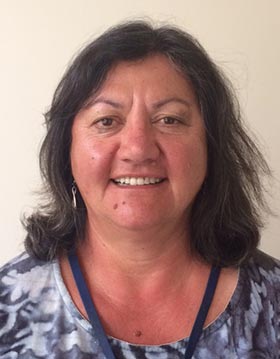
In recent years, Heritage Lifecare has purchased multiple aged residential care facilities across Aotearoa. Many of the workers in these workplaces were previously covered by collective agreements, with generally more favourable terms and conditions (weekend rates, overtime etc).
Most workers, though, have had their terms and conditions set in individual agreements and have not had the benefit of collective bargaining as a mechanism to improve these.
This has meant the union bargaining team has been working through the bargaining process to bring together the best possible clauses from across numerous agreements for a single national Heritage MUCA. Bringing together multiple sites into one MUCA is always complicated.
While there are still significant clauses to be negotiated, NZNO advocates Christina Couling and Lynley Mulrine are pleased with progress and note there seems to be a genuine commitment from all parties.
The union team has negotiated an interim wage increase for nurses of approximately 4.4 per cent to five per cent on average depending on the role. Increases for household (kitchen, cleaning etc) were also negotiated.
Bargaining has been a long haul so organisers will meet with members over the next few months to walk them through the proposed clauses so far.
It is important that Heritage members fully understand the proposed MUCA as ratification voting will take place once a proposal is reached.
Bargaining in aged care generally has continued using a blend of Zoom and face-to-face meeting where possible.
Some bargaining was delayed in anticipation that COVID-19 restrictions might be relaxed.
Campaigning for safe staffing
After well-attended and inspiring regional member meetings in Southland, the meetings came to a standstill during the COVID-19 outbreaks.
As an alternative, NZNO and E Tû are holding online forums for members to discuss concerns with Green and Labour MPs starting with Auckland / Northland then Wellington / Central regions and onto Christchurch / Nelson.
Our first meeting hosted more than 100 aged care workers from across the northern region along with three MPs and representatives from Grey Power.
These hui have been organised primarily to support aged care workers to lobby MPs on important issues facing their sector.
Our union leaders working in aged care have done just that – seeking commitment from MPs to support calls for mandatory minimum staffing levels across the sector. While a little shambolic (managing more than 100 active participants can get difficult!), the meetings were very successful.
Access to Zoom technology for many members has been a challenge and we hope to return to face-to-face meetings soon.
Secondary employment
Some aged care employers continue to restrict workers from secondary employment.
This despite district health boards not placing the same pandemic restrictions on their workforce.
At a time of nursing shortages, employers should use alternatives such as staff being vaccinated and supported to stay at home if unwell and the full implementation of standard IPC measures to reduce the risk of transmission between settings as recommended by the MoH.
Lesley Harry is an NZNO aged care industrial advisor.





